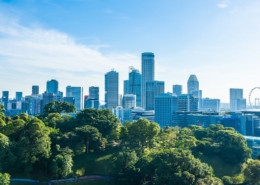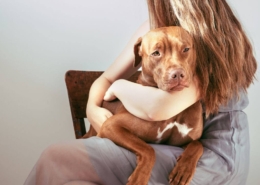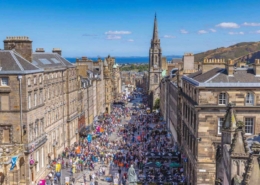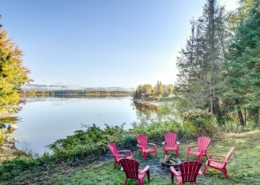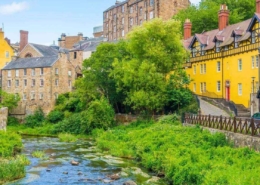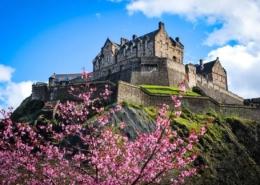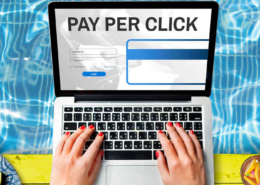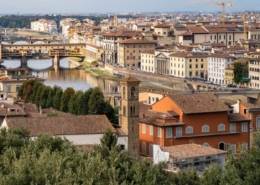On the West Coast of Canada you’ll discover Vancouver, which is a thriving city surrounded by beautiful mountains and gorgeous scenery. Within the region, there’s plenty of things to keep you busy, which is probably why the area houses more than 600,000 people. Other than the permanent residents, Vancouver also boasts of millions of tourists traveling there from all across the globe.
Up until now, short-term rentals like Airbnb properties have been largely unregulated. That meant housing prices shot up through the roof, the long-term rental market suffered, and the Vancouver hotel industry took a battering.
However, the City Council appreciates the benefits of Airbnb; authorities realize that Airbnb enhances the tourism industry while allowing residents to establish an extra income stream. Subsequently, there was a council meeting in November 2017, where they came to a consensus to approve short-term rentals with a few regulations.
So, if you’re thinking of renting your property out on Airbnb in Vancouver, you may want to keep reading to determine what is, and isn’t allowed…
How can you operate a short-term rental?
- First and foremost, the property you’re advertising as a short-term rental must be your primary residence. That means you must personally live there for at least 6 months out of the year, and all of your bills, taxes, insurance and identification must use that address.
- Secondly, you must apply and then receive a short-term rental business licence. If you’re caught operating without a licence you could face serious penalties and fines.
- In addition, the property must comply with all Vancouver legalities. What legalities? Well, some of them include a legitimate building code and adequate fire safety measures.
- If you’re not the owner of your primary residence, you must seek permission from your landlord to sublet the property as a short-term rental. Essentially, if your landlord declines your request, you won’t be able to move forward with your Airbnb venture.
- If you’re living in strata, meaning you own an individual property within a complex of adjoining properties, you’ll need to make sure the strata bylaws allow short-term rentals in the complex.
What will prevent you from operating a short-term rental?
- If you’ve bought a property with the sole intention of placing a listing on Airbnb, you ought to think twice. If the property isn’t your primary residence, you won’t qualify for a short-term rental business licence.
- The property being a legal dwelling unit is incredibly important to Vancouver authorities. If the residence doesn’t comply with legalities and regulations, such as the building code and fire safety examples we gave earlier, you won’t be able to operate.
- Lastly, if you rent your property or you live in strata, and your landlord or the strata bylaws don’t provide their full support, you won’t be authorized to proceed with renting it out.
Airbnb hosts can rent out entire properties, private or shared rooms.
- 6,651 – Airbnb listings in total
- 4,536 (68.2%) – entire properties
- 1,950 (29.3%) – private rooms
- 164 (2.5%) – shared rooms
- $150 – average price per night
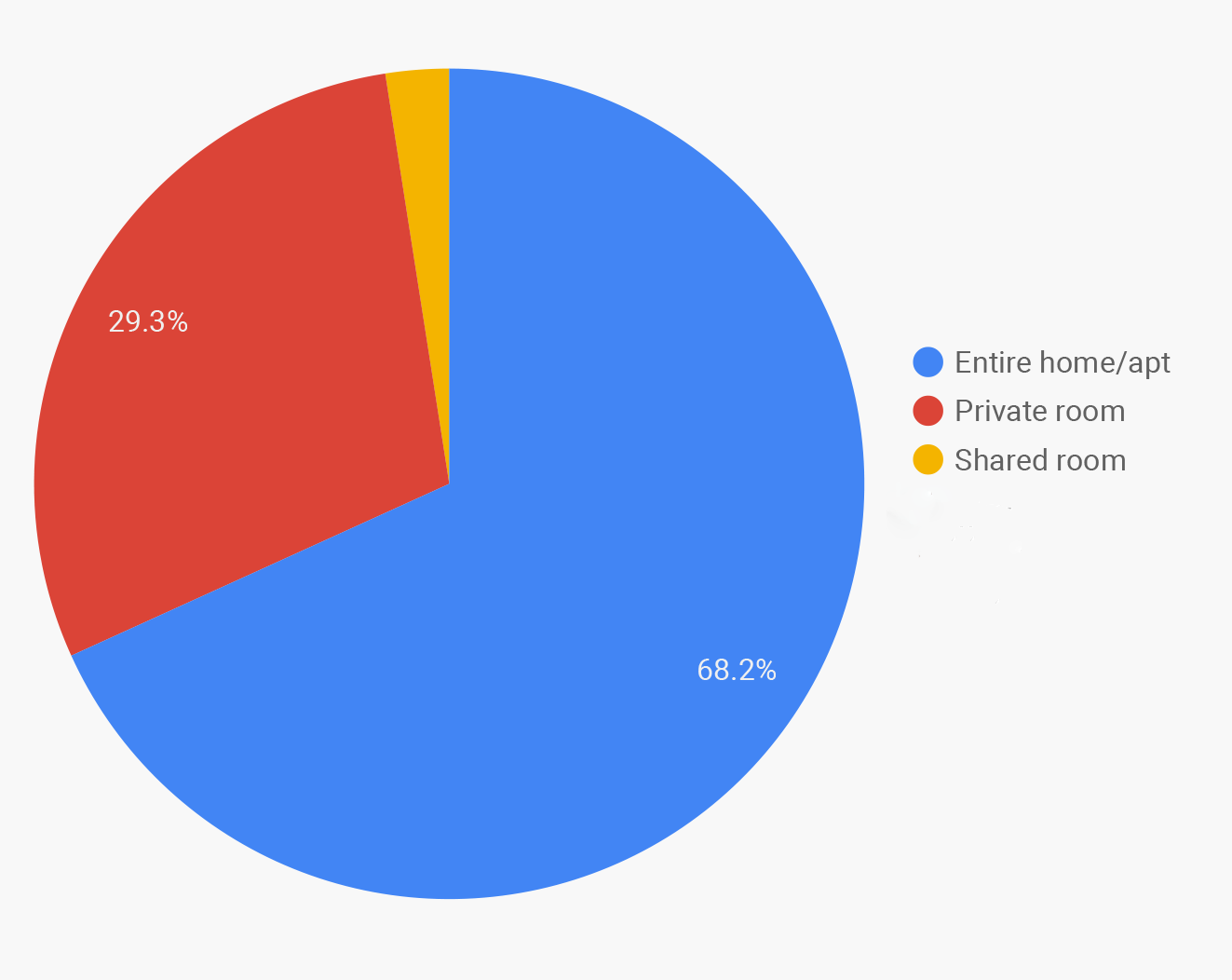
4,536 (68.2%) – entire home/apt
1,950 (29.3%) – private rooms
164 (2.5%) – shared rooms

Airbnb guests may leave a review after their stay, and these can be used to estimate Airbnb guests activity. However not all guests leave a review, so the actual activity could be higher.
An average income per month has been calculated by using the minimum stay, the average price per night and the total number of reviews.
- 115 – approximate nights per year
- 2 – average reviews of listings per month
- 149,598 – reviews in total
- $150 – average price per night
- 32.7% – estimated occupancy
- $1300 – estimated average income generated per month
It is possible for a host to list multiple properties that they have available or different rooms which are available on the same property.
- 2,426 (36.5%) – number of multi-listings
- 4,225 (63.5%) – number of single listings
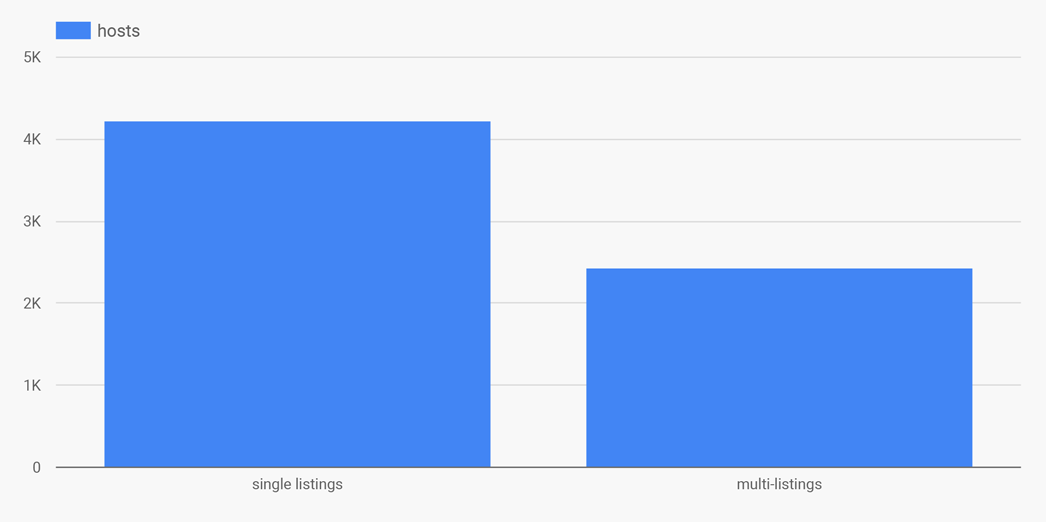
Listings belonging to the one host
Airbnb listings where host has more than one listing
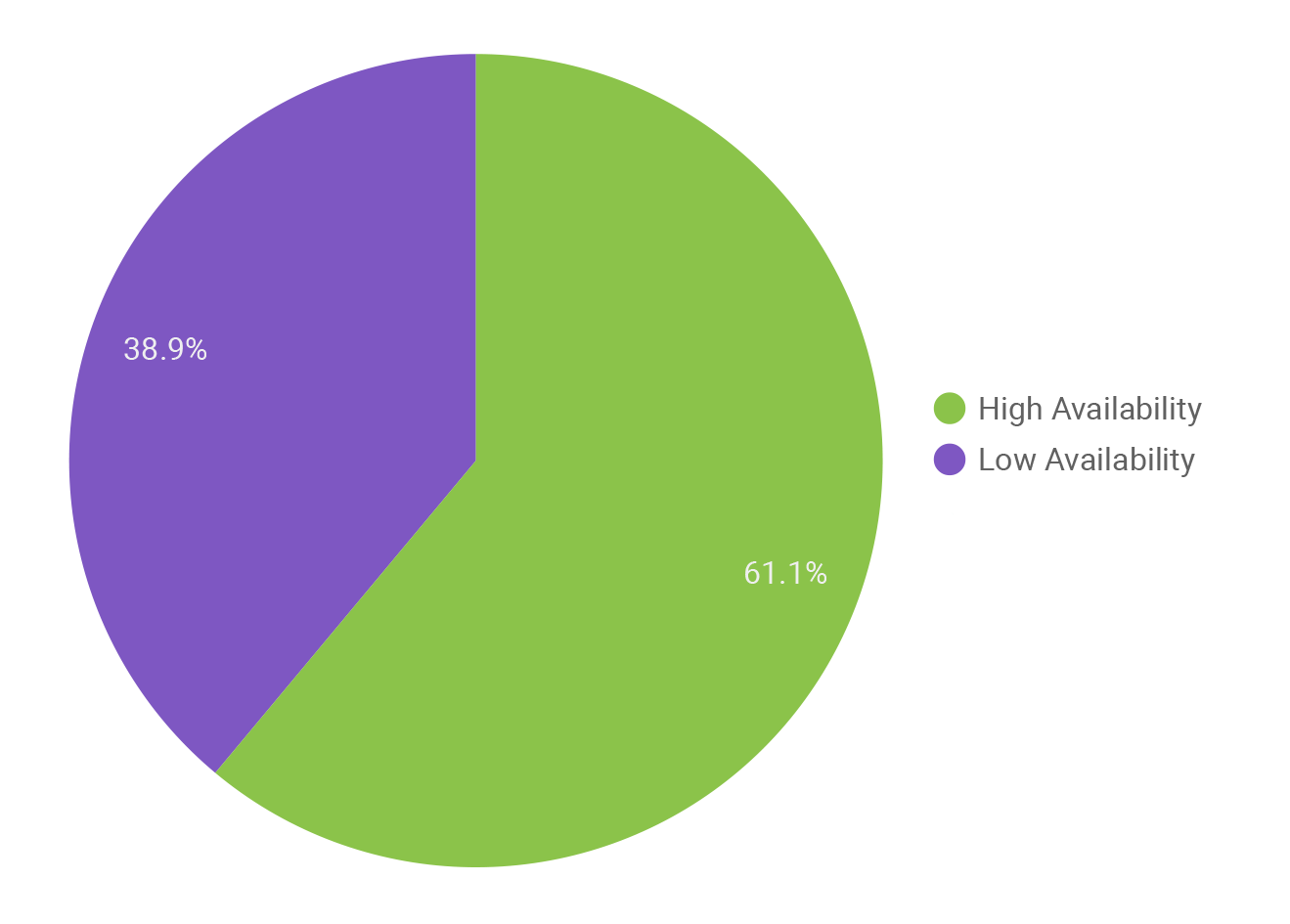
4,061 (61.1%) – high availability
2,589 (38.9%) – low availability
Airbnb hosts have full freedom when it comes to selecting how available their property or rooms are. For instance, by utilizing the calendar tool, a host can set their property to be available for just one week in a year. Alternatively, another example is a host setting their rooms to be available for 11-months out of the 12.
- 4,061 (61.1%) – high availability
- 2,589 (38.9%) – low availability

